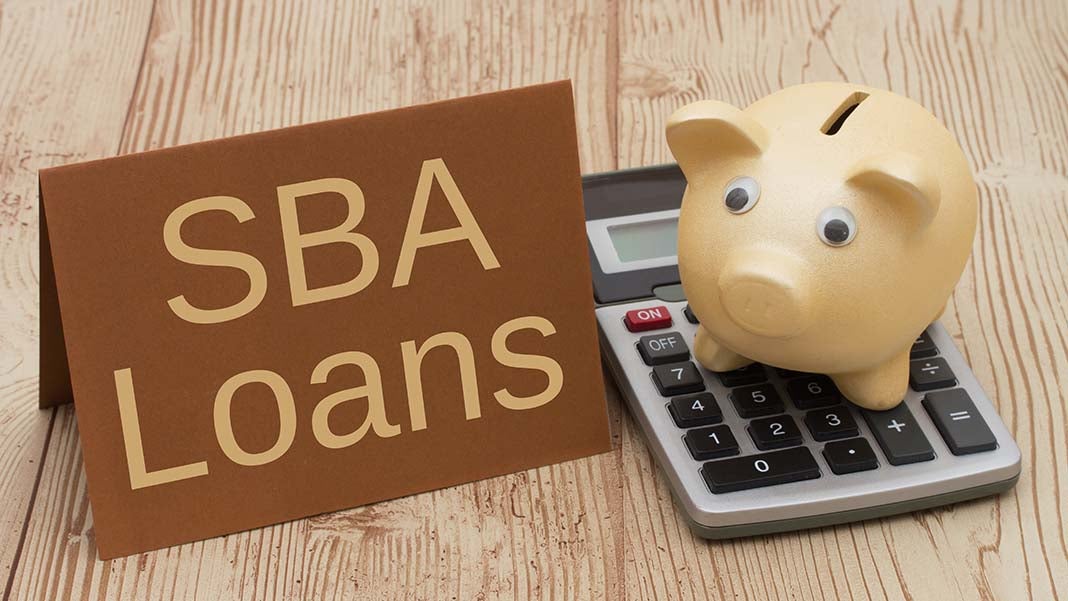
The Small Business Administration (SBA) loan program is amazing. It’s a big driver of the economy.
Every year, the SBA, a government agency, guarantees thousands and thousands of loans to small business across the United States, totaling several billion dollars (not a typo, that’s billion with a “b”!).
There are a bunch of unique features about SBA loans, but there’s one big one that is most attractive to small business owners. SBA loans have very lax collateral requirements as compared with their traditional small business lending counterparts.
While the SBA loan program is great, and anyone looking to finance their small business should consider an SBA loan, there are some facts about them that people typically misunderstand.
Myth #1: The SBA Makes Loans
I’ll dispel this one pretty quickly. They don’t, except in special cases like disaster loans. Most SBA loans (7a and 504) are not funded by the SBA.
The SBA’s role in the process from a cash standpoint is that they guarantee to reimburse the lender if you default on your loan obligation. The initial loan is funded by your lender.
The SBA only pays out cash in the event that a borrower doesn’t repay the loan as agreed. In most cases, it’s about 75% of the loan amount.
Myth #2: The SBA Will Pay Off Your Loan If You Default
I’ve heard this one more often than any other. I get a call from a confused borrower every few months, who doesn’t understand why they are liable for the debt when the SBA guarantees the debt.
On the face of it, I can understand the confusion. The SBA does guarantee the loan. The important distinction is that the SBA guarantee is for the lender, NOT the borrower.
The lender gets reimbursed for about 75% of the principal balance at the time of default. This reimbursement does not carry over to the borrowers or the guarantors.
So what’s the net effect of the SBA guarantee to the borrower and guarantors? Nothing. You will still owe the same amount regardless of how much the SBA reimburses the lender for.
So what good is an SBA guarantee if it doesn’t reduce the amount you owe? In theory, the whole idea of the SBA loan is to give credit to those who won’t qualify with conventional lenders. Essentially, it gets you a loan that you otherwise couldn’t get in exchange for a fee.
Myth #3: No Need to Worry About Personal Liability
People get confused about protections afforded from forming entities like S-Corps, C-Corps, LLCs, or partnerships. They think that because their business is in the name of separate legal entity, they won’t be personally liable for their SBA loan.
As one guy put it, “If I’m personally liable, what the heck was the point of forming my S-Corp?”
Yes, by having your business in the name of a legal entity, it does help in certain situations (I’ll leave details to an attorney). But here’s the thing: the SBA always requires business owners (typically 20% ownership or more) to sign a personal guarantee.
Since the SBA pretty much universally requires personal guarantees, it’s important to understand that regardless of what type of corporate structure you have, you will be personally responsible for the debt if the business fails.
Myth #4: Bankruptcy Will Make It All Better
I won’t get too far into the weeds here because I’m not a bankruptcy attorney, but I want to explain a very important bankruptcy fact that I learned in my days as a workout officer:
If you pledge your home as collateral for your SBA loan, and that home has equity in it, a personal bankruptcy will NOT get that lien released.
Even if a bankruptcy discharges your personal guarantee, you will still have to negotiate to a release of the lien from your original lender. Otherwise the lender could possibly foreclose (not in all states). Even if they don’t foreclose, having a large lien on your home will make it impossible to refinance or sell your home.
And just to add insult to injury, the longer you wait to address the lien, the more equity you’ll typically have in your home due to increased prices and paying down your mortgage.
It would be pretty horrible to have make payments for the next 30 years, only to find out that the $500K lien you granted in connection with your SBA loan is still there.
Conclusion
While the SBA loan is a lifeline for so many small businesses around the US, it’s not without risk, and it’s most definitely not free money. So before you sign on the dotted line, be sure to understand exactly what you are signing up for.
2098 Views












